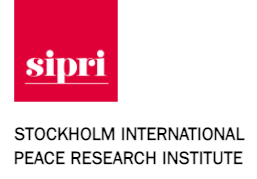Speakers

Elham Saudi
Co-founder and Director, Lawyers for Justice in Libya

Yasmeen Al-Eryani
Co-Executive Director for Knowledge Production, Sana'a Center for Strategic Studies

Manal Taha
Sudan Expert and Security Analyst
Moderator

Alaa Tartir
Senior Researcher, Stockholm International Peace Research Institute (SIPRI) Research; Associate, Centre on Conflict, Development, and Peacebuilding, Geneva Graduate Institute
About the Webinar
As developments in Palestine, Syria, and Lebanon dominate the MENA news headlines, the crises in Libya, Sudan, and Yemen fell under the radar and seem to have been forgotten and the suffering of civilians neglected. Yet, these wars remain among the deadliest and most destabilizing in the Middle East and North Africa, with devastating humanitarian consequences. In Libya, years of internal strife between rival governments in the east and west have left the country fractured, with foreign mercenaries still present despite ceasefire agreements. The political deadlock and economic mismanagement have worsened living conditions, and as oil revenues remain contested, the potential for renewed conflict looms. In Sudan, the civil war between the Sudanese Armed Forces (SAF) and the paramilitary Rapid Support Forces (RSF) has turned into one of the worst humanitarian crises in recent history. Over 8 million people have been displaced, famine threatens millions, and atrocities—many labeled as war crimes—continue unchecked, while international diplomatic efforts remain fragmented. In Yemen, despite a lull in large-scale fighting, the country remains in a dire humanitarian state. The fragile ceasefire has done little to resolve the deeper political divisions, as the Houthis and the internationally recognized government remain locked in a stalemate over governance and economic control. Meanwhile, external actors continue to pursue their strategic interests in the country while the United States and its allies launch deadly airstrikes.
 Arab Center Washington DC (ACW) and the MENA Programme at the Stockholm International Peace Research Institute (SIPRI) are convening a panel of experts to examine these neglected conflicts, their key drivers, and pathways toward potential resolutions. Panelists will discuss the current status of the conflicts and warring parties in Libya, Sudan, and Yemen, the challenges to pursuing and reaching a political solution, and recommendations for ending the stalemates and moving to post-conflict stages. How have shifting geopolitical alliances impacted regional and international engagements in each of Libya, Sudan, and Yemen? What role do foreign actors play in fueling or mitigating these wars? What are the pathways and prerequisites for a constructive and inclusive political process? How can transitional governance be structured to prevent renewed conflict? What mechanisms could ensure accountability for war crimes and justice for victims? How can economic policies, including resource management (e.g., Libya’s oil, Sudan’s gold, and Yemen’s ports), support post-war recovery? What future scenarios could unfold if these conflicts remain unresolved? And what steps can regional and global actors take to shift toward lasting peace? Acknowledging that such processes are complex, non-linear, and context specific, and considering the changing nature of regional and global powers’ interventions in these conflicts and the different political reality that is emerging in the region today, ACW and SIPRI invite you to join this forward-looking discussion of the different future scenarios that could transform the region in alignment with the aspirations of its people.
Arab Center Washington DC (ACW) and the MENA Programme at the Stockholm International Peace Research Institute (SIPRI) are convening a panel of experts to examine these neglected conflicts, their key drivers, and pathways toward potential resolutions. Panelists will discuss the current status of the conflicts and warring parties in Libya, Sudan, and Yemen, the challenges to pursuing and reaching a political solution, and recommendations for ending the stalemates and moving to post-conflict stages. How have shifting geopolitical alliances impacted regional and international engagements in each of Libya, Sudan, and Yemen? What role do foreign actors play in fueling or mitigating these wars? What are the pathways and prerequisites for a constructive and inclusive political process? How can transitional governance be structured to prevent renewed conflict? What mechanisms could ensure accountability for war crimes and justice for victims? How can economic policies, including resource management (e.g., Libya’s oil, Sudan’s gold, and Yemen’s ports), support post-war recovery? What future scenarios could unfold if these conflicts remain unresolved? And what steps can regional and global actors take to shift toward lasting peace? Acknowledging that such processes are complex, non-linear, and context specific, and considering the changing nature of regional and global powers’ interventions in these conflicts and the different political reality that is emerging in the region today, ACW and SIPRI invite you to join this forward-looking discussion of the different future scenarios that could transform the region in alignment with the aspirations of its people.
Featured image credit: Shutterstock/Akram Alrasny
